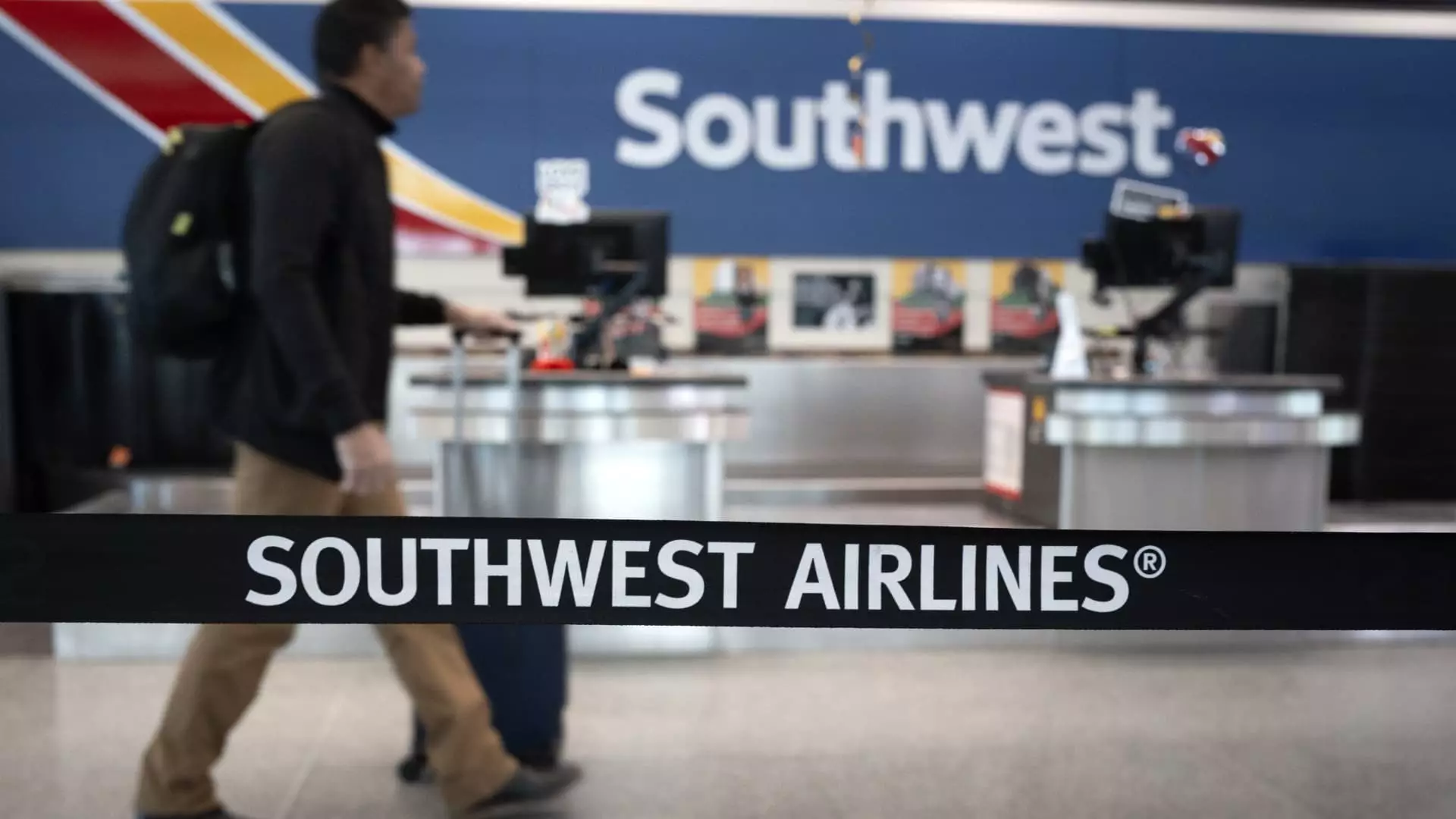In an unprecedented move, Southwest Airlines, a carrier long celebrated for its commitment to customer-friendly policies, is dismantling a hallmark of its service: the beloved “two bags fly free” policy. Starting on Wednesday, travelers will encounter a paradigm shift as the airline embraces baggage fees for the first time in over fifty years. This significant policy alteration raises important questions about the future of air travel and consumer loyalty, and for many Southwest loyalists, it feels as if the airline is not just changing a policy, but rather abandoning a part of its identity.
Southwest’s decision marks a strategic pivot in its business model, fueled by economic pressures and increased competition within the aviation industry. Executives have whispered extensively about the financial benefits of baggage fees, a lucrative revenue stream amassed to nearly $7.3 billion across U.S. airlines in just one year. Southwest, under pressure to adapt and evolve, has surrendered a piece of its heart in favor of an increased bottom line.
Financial Necessity or Corporate Greed?
While it is easy to dismiss this shift as a mere business strategy driven by monetary gain, it’s also essential to recognize the broader context. Southwest executives allege operational costs have surged, necessitating this adjustment. However, this brings the age-old dilemma of consumer-facing ethical choices in the corporate world to the forefront. Is it responsible for companies to capitalize on consumer loyalty and eliminate perks simply to appease shareholder demands? As consumers, we must weigh the implications of supporting airlines that abandon core values under the guise of financial rationality.
Pricing changes are often justified in the name of improvement and competitive pressure. With competitors already charging approximately $35 to $40 for the first checked bag, it’s no stretch to see how Southwest hopes to maintain competitive parity. Yet, in the face of increased costs for travelers, are consumers truly being given fair choices, or are we shoved into a compartmentalized pricing structure that favors profit maximization over the experience?
Transforming the Customer Experience
Southwest’s appeal has long stemmed from its culture of open seating, affordability, and the absence of hidden fees. However, as we approach 2024, the airline is embracing policies more akin to its rivals, such as implementing basic-economy tickets that restrict changes and shift priority boarding. These structural changes will impact not only pricing but will also dictate the emotional engagement customers have with the airline.
This strategic overhaul raises the bar on questioning consumer expectations: Can loyalty survive a shift towards conventionality? With program shifts, like the end of the “Wanna Get Away” fare, loyal flyers are left to wonder whether their loyalty will be rewarded or treated as merely another market segment to exploit. By mimicking the baggage fee model and removing elements that once defined their brand, are they risking the essence of what made them beloved?
The Reaction of the Public
In a world where corporate policies can swiftly polarize public sentiment, the backlash against Southwest’s decision has been palpable. Social media platforms have become a battleground for frustrated customers voicing discontent. An airline that formerly shared lighthearted interactions about traveling babies and puppies now contends with outraged travelers scorned by its betrayal of consumer trust.
Yet, the company’s CEO, Bob Jordan, expressed confidence that this policy change wouldn’t deter business. With seemingly no immediate drop in bookings following the announcement, one must wonder: does consumer loyalty fade faster than anticipated? It begs the question of whether short-term fiscal gain could prove detrimental in the long term as disenchanted customers look to other airlines that have previously kept the customer experience at the forefront.
The Future of Affordable Air Travel
The broader implications of Southwest’s decision reflect unsettling trends in air travel: as costs escalate and consumer choices diminish, the once-clear distinction between low-cost carriers and traditional airlines becomes murkier. Airlines now compete—not just for fares—but for the hearts and minds of their customers. As companies prioritize profits, enhancing the consumer experience diminishes as a priority.
In the crux of shifting market dynamics, seasoned travelers must reevaluate loyalty to airlines that veer away from customer-centric policies. While it’s plausible that some travelers may continue to embrace Southwest despite its recent changes, many are left questioning whether the warm nostalgia associated with the airline is worth forgoing for potentially more accommodating carriers.
As we compare the evolving landscape of air travel in the wake of Southwest’s policy overhaul, it is clear that the industry stands at a crossroads. The decisions made today regarding baggage fees, family-friendly policies, and ticketing structures will influence generations of travelers moving forward.


Leave a Reply